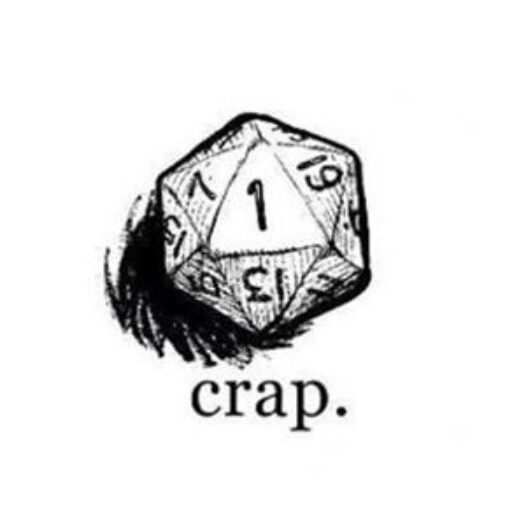 Religion hasn’t figured very highly so far in our Pathfinder games. We had Lonny Doon, cleric of Torag, the dwarven god of being super-dwarven; Halvard Blodvin, who represented Gorum, Our Lord In Iron, very well I thought. And Ron Towin, who was a kind of a lay follower of Abadar, god of civilization, commerce and cities, with a unique spin.
But other than characters, there were no real plotlines motivated by any particularly religious power. Lamashtu, Mother of Monsters made frequent appearances early on because she is a pretty good bad guy costume for bad guys to wear. Father Zantus was a Cleric of Desna, but there wasn’t really much for him to do other than act concerned about Sandpoint. Everyone was concerned about Sandpoint because there is no God-of-being-on-fire-and-stabbed-by-goblins.
That’s too bad because I think that the religions in fantasy roleplaying games are a very economical way of world-building: you can tell a lot about the setting from the gods of that place. Characters you meet too; “Follower of Desna” is a good shorthand for portraying someone who is typically peaceful, joyful, footloose and fancy free, accepting of new people and places, open to the mysteries of the world and the world beyond. Similarly, it gives the players some leverage when dealing with followers of antagonistic gods – followers of Rovagug, god of destruction can’t easily be reasoned with but are predictable in their embrace of violence whereas Asmodeans… need to be handled differently.
I’ve always really enjoyed playing clerics, which amuses me on some level, given how little time I have for actual religions. I’ve always been fond of the gods in D&D and roleplaying games (Oh, Call of Cthulhu gods, you know I’d never doubt you). I don’t know why, probably because they show up for work, something that doesn’t happen in our universe. Noooooo, it doesn’t. It is a comforting idea, Call of Cthulhu gods aside, that there is some all powerful being up there taking care of you; even more so if they actually take care of you.
More of this Christa Tippett shit after the cut…
In D&D and now Pathfinder, there are gods. People know this because they very clearly manifest themselves. You can be a god-ignorer in Pathfinder and you can even be antagonistic to gods in general, but you know they exist. Faith is not required*. Without getting too metaphysical, this explicitly changes what faith means in the god sense of things. The argument between faith and knowledge was settled a long time ago in the early Christian church when the faith-in-god section found it expedient to execute gnostics. In the game, clerics don’t have faith in a god, they know that the god exists – they have faith that saying this prayer over this dying fighter will close up his wounds and send him back into the fight. It is faith in the efficacy of their god, not just throwing a prayer out there and hoping for the best. It is possible to break the deal they struck with the god by acting against their teachings, but that doesn’t happen very often.
*On Golarion the nation of Rahadoum has turned its back on the gods and goes about its business the hard way, preferring to figure stuff out for themselves rather than having cosmic parents helping them out all the time.
Of course you don’t have to be a cleric to be religious or at least give the gods their due. Paizo has done a good job of coming up with various different festivals that honour one god or another and some of those are pretty cool ideas. Much the same as the goofy holiday shit that Blizzard used to put in World of Warcraft, players receive small temporary bonuses for participating in the various festivals. I like that, it adds a bit of flavour to the setting – goodness knows where the last party would have been without the Swallowtail Festival honouring Desna in Sandpoint.
Take, for example, the recent April 15th inspired Taxfest:
Religion hasn’t figured very highly so far in our Pathfinder games. We had Lonny Doon, cleric of Torag, the dwarven god of being super-dwarven; Halvard Blodvin, who represented Gorum, Our Lord In Iron, very well I thought. And Ron Towin, who was a kind of a lay follower of Abadar, god of civilization, commerce and cities, with a unique spin.
But other than characters, there were no real plotlines motivated by any particularly religious power. Lamashtu, Mother of Monsters made frequent appearances early on because she is a pretty good bad guy costume for bad guys to wear. Father Zantus was a Cleric of Desna, but there wasn’t really much for him to do other than act concerned about Sandpoint. Everyone was concerned about Sandpoint because there is no God-of-being-on-fire-and-stabbed-by-goblins.
That’s too bad because I think that the religions in fantasy roleplaying games are a very economical way of world-building: you can tell a lot about the setting from the gods of that place. Characters you meet too; “Follower of Desna” is a good shorthand for portraying someone who is typically peaceful, joyful, footloose and fancy free, accepting of new people and places, open to the mysteries of the world and the world beyond. Similarly, it gives the players some leverage when dealing with followers of antagonistic gods – followers of Rovagug, god of destruction can’t easily be reasoned with but are predictable in their embrace of violence whereas Asmodeans… need to be handled differently.
I’ve always really enjoyed playing clerics, which amuses me on some level, given how little time I have for actual religions. I’ve always been fond of the gods in D&D and roleplaying games (Oh, Call of Cthulhu gods, you know I’d never doubt you). I don’t know why, probably because they show up for work, something that doesn’t happen in our universe. Noooooo, it doesn’t. It is a comforting idea, Call of Cthulhu gods aside, that there is some all powerful being up there taking care of you; even more so if they actually take care of you.
More of this Christa Tippett shit after the cut…
In D&D and now Pathfinder, there are gods. People know this because they very clearly manifest themselves. You can be a god-ignorer in Pathfinder and you can even be antagonistic to gods in general, but you know they exist. Faith is not required*. Without getting too metaphysical, this explicitly changes what faith means in the god sense of things. The argument between faith and knowledge was settled a long time ago in the early Christian church when the faith-in-god section found it expedient to execute gnostics. In the game, clerics don’t have faith in a god, they know that the god exists – they have faith that saying this prayer over this dying fighter will close up his wounds and send him back into the fight. It is faith in the efficacy of their god, not just throwing a prayer out there and hoping for the best. It is possible to break the deal they struck with the god by acting against their teachings, but that doesn’t happen very often.
*On Golarion the nation of Rahadoum has turned its back on the gods and goes about its business the hard way, preferring to figure stuff out for themselves rather than having cosmic parents helping them out all the time.
Of course you don’t have to be a cleric to be religious or at least give the gods their due. Paizo has done a good job of coming up with various different festivals that honour one god or another and some of those are pretty cool ideas. Much the same as the goofy holiday shit that Blizzard used to put in World of Warcraft, players receive small temporary bonuses for participating in the various festivals. I like that, it adds a bit of flavour to the setting – goodness knows where the last party would have been without the Swallowtail Festival honouring Desna in Sandpoint.
Take, for example, the recent April 15th inspired Taxfest:
No one enjoys paying taxes. Every year, though, on the 15th of Gozran, priests of the church of Abadar spend the day walking city streets, doing what they can to make the bitter pill of annual taxes a bit easier to swallow. From dawn to dusk, clerics of Abadar attend the tax collectors of sizable communities as the tax wagons roll from door to door. More than just aiding in the yearly errand, the faithful personally thank every citizen for contributing to the improvement of their city, extol the public works funded by their contributions, and foretell the grandeur of civic projects to come. The disenfranchised and destitute they attempt to comfort as best they can, quoting from their god’s dogma on work and worthiness, but this is not a day for discounts or deferrals.
At dusk, the Abadarans host several celebrations in parks, plazas, and other communal areas about the city, organizing donations and contributions from local vendors to feed and entertain all comers. Having already preached to most of the city over the course of the day, the clerics perform only a brief opening ceremony, dedicating the feast to Abadar, the city, and its great people. These celebrations are often quite distinct from neighborhood to neighborhood and are almost always divided along economic boundaries.
If your character observes Taxfest or participates in the ceremonies there is a boon to go with it, usually the effect of a spell associated with the religion. For example, after attending Taxfest, the next time someone pays a tax or tariff, they gain the benefit of the particular spell for 12 hours. Something like that anyway. I think it is worth looking at the various deities commonly worshipped by the core races of Golarion – in part because observance of a particular religious practice can serve as a shorthand for what kind of values your character – or characters you meet – may hold dear. I’ll start with the Bad Guys before moving on to the other gods and dealing with Paladins. The Bad Guys








